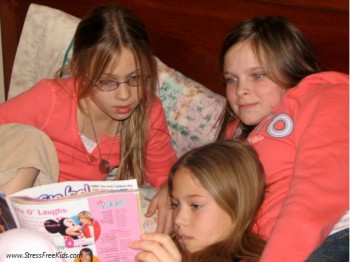by Lori Lite
It’s no secret that natural disasters have a way of uprooting lives and tearing communities apart. Hurricane Sandy has devastated the lives of thousands in the northeast, most who are still working tirelessly to get their lives back to normal. Children, in particular, thrive in a structured environment, which becomes nonexistent in times of a natural disaster.
Families are still struggling with obtaining basic life necessities, while trying to stay mentally sound. Dealing with the aftermath of Hurricane Sandy has left families and entire communities with questions of how to find peace and structure among the chaos and confusion. Here are a few things you can do to help reduce stress and anxiety for your children during these uncertain times:

Hurricane Sandy Tips Help Kids
- Reestablishing a routine is beneficial to children and the family as a whole. While this may be difficult if you have lost your home or if you are still without power, establishing a routine will help your family cope with the many changes from their everyday life. Sharing meals together and allotting chores are just few ways to make a child feel as though they are in a stable environment and therefore less stressed.
- Creating activities for children will draw their attention away from the disaster and have them focus on a more positive task. If without power, turn towards activities such as coloring or drawing to help your child lower their anxiety levels and enjoy the familiarity of creativity.
- Keeping communication open will help your family stay connected by expressing shared thoughts and fears. Parents should make sure they create a comfortable environment for their children to express their worries or concerns. Ongoing and reassuring communication is a key element in reducing stress levels. If children are withdrawn and unwilling to talk, they may feel more comfortable expressing their feelings through drawings, journal entries or stories. Art can be a healthy means of communication and should be promoted. But, beware, there are sources of information that are likely to make children suffer additional anxiety. Do not share adult level fears with your children. A child is not your therapist, friend or emotional dumping ground. Address and support your child’s fears. Times of tragedy can take an emotional toll on children, so make sure to lend an ear and work toward an understanding together.
- Limiting exposure to media coverage is important for reducing stress in children. A constant reminder of how their world has been torn apart builds overwhelming anxiety and distress. Monitor what they are watching and encourage conversation about what they have seen.
- Connecting with other disaster victims can help parents and children immensely. Understanding that others have suffered can help you cope with your own experience. Sharing “next-step” ideas with one another can also help to work towards a new future, and perhaps introduce positive ways to move forward that you may not have realized. Socializing also steers the mind away from focusing on the negatives in the past, so talking with other families who are going through the same situation is beneficial.
- Sharing your plan with your children of how your family is going to stay safe and begin a new life with a positive outcome is important in moving forward. Often adults assume that children understand what’s happening, but children have very vivid imaginations and tend to project the most negative outcomes.
- Keeping your children safe during the aftermath of a natural disaster is imperative. Especially if you are currently residing in a shelter, use a masking tape on the inside of your child’s clothing or a piece of paper in their pocket with their name, age, parents’ names and cell phone numbers. This is especially important for children with special needs.
- Listening to relaxing music and stories is a great way to salvage peace of mind through these troubling times. Relaxation stories can help your children feel calm, and even help them sleep better in an unfamiliar place. If you have internet access, download the Indigo Dreams relaxation music for kids, teens and adults to help you and your family reduce the stress and anxiety brought on by Hurricane Sandy.
For parents with special needs children, understand that what they are experiencing can be exceptionally overwhelming. Creating a safe and stable atmosphere is essential to their well-being. Implementing a routine with their usual activities helps special needs children to feel a sense of calm through the confusion. If you are currently residing in a hurricane shelter or another safe haven, be sure to define your child’s space and belongings so they feel more comfortable in the brand new environment. Applying these tips to children with special needs can produce predictability and familiarity during a chaotic situation.
Stress Free Kids founder Lori Lite is a freelance blogger, social media strategist, parenting expert, and successful entrepreneur. Her line of books and CDs are designed to help children, teens, and adults decrease stress, anxiety, and anger. Ms. Lite’s books, CDs, and lesson plans are considered a resource for parents, psychologists, therapists, child life specialists, teachers, doctors, and yoga instructors. Lori’s award winning books received national attention on Shark Tank and her sort after accessible tips have been featured in hundreds of publications to include: CNN Living, Real Simple Magazine, USA Today, Family Circle, Working Mother Magazine, and Web MD. For more information visit Stress Free Kids and for daily advice follow Lori on Twitter and Facebook.